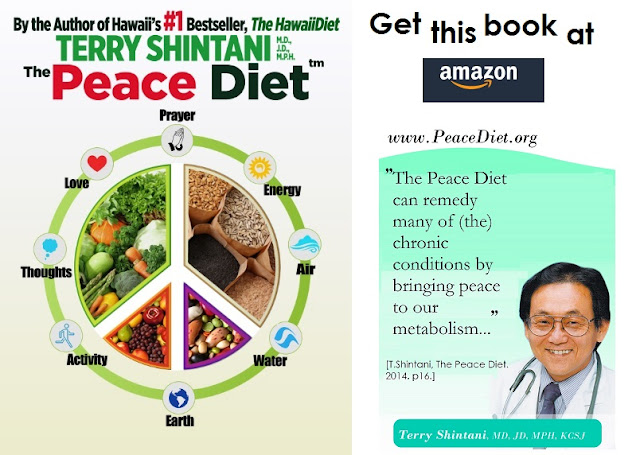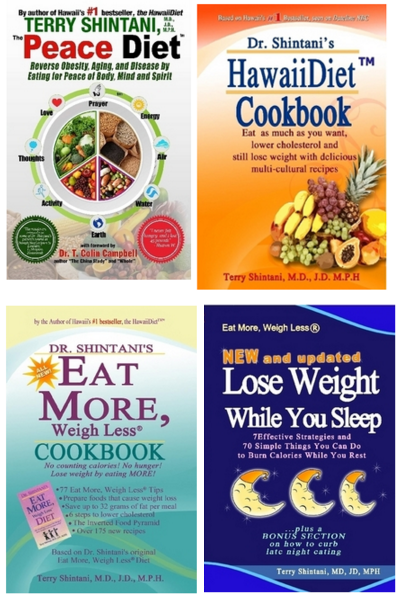Beverages
also play an important role in Dr. Terry Shintani’s Peace Diet program. It is mentioned is his Peace Diet book that beverages
should be water or non-caloric beverages such as tea or herbal tea. Patients
should avoid sugared drinks and artificially sweetened drinks. Ironically,
sugar-free is worse than sugar because they add chemicals such as aspartame,
sucralose and saccharin to sweeten "sugar free" beverages. If a patient wants to try any sugar
substitute, better use stevia because it is a natural glycoside from the stevia rebaudiana plant originally from
Paraguay.
Fruit should be eaten whole. Pure fruit juices are, of course, better
than sugared or artificially sweetened beverages. For example, in comparing
oranges and orange juice, the blood sugar response to orange juice is slightly
higher than that of oranges. But there is a slow return to normal blood sugar.
This is bordering on hypoglycemia or low blood sugar later. This low sugar can
lead to fatigue, hunger and cravings.
 |
| Click the image to get it from Amazon |
What's worse is that juicing fruit makes the insulin go even higher. As
explained in the Peace Diet book,
high insulin levels contribute to metabolic syndrome. Drinking orange juice
causes insulin to go much higher than eating whole oranges. If a patient wants
to do juicing, add lots of vegetables to reduce the glycemic number of the
juice. And remember that carrots, although very healthy and full of carotenoids
and excellent nutrition, have a glycemic number higher than plain sugar and,
though eating them is usually not a problem because they are just seven grams
of carbs per carrot, juicing carrots could easily give a patient too much
sugar.
In drinking caffeinated beverages, tea is preferable to coffee because
tea is alkalizing and also has some known anti-cancer and anti-inflammatory
processes. Coffee is okay for health, but it can be acidifying. Further, it can
contribute to afternoon tiredness and needs to be excluded in the regimen of
spiritual development. What is even better is tea that does not have caffeine
in it. Most herbal teas are very good for this purpose as Dr. Terry Shintani
suggested. Hawaiian mamaki tea is known to have similar anti-cancer
phytonutrients as green tea but has no caffeine in it.


